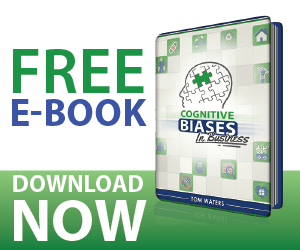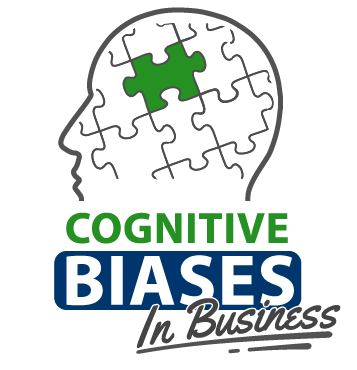 https://everydaysaleshq.com/wp-content/uploads/2017/06/Rhyme-as-reason-effect.png
128
128
Tom Waters
https://everydaysaleshq.com/wp-content/uploads/2017/06/Everyday-Sales-with-Tom-Waters-Text-Logo-b-300x158.png
Tom Waters2017-06-21 16:43:092018-11-19 19:44:14Rhyme as Reason Effect
https://everydaysaleshq.com/wp-content/uploads/2017/06/Rhyme-as-reason-effect.png
128
128
Tom Waters
https://everydaysaleshq.com/wp-content/uploads/2017/06/Everyday-Sales-with-Tom-Waters-Text-Logo-b-300x158.png
Tom Waters2017-06-21 16:43:092018-11-19 19:44:14Rhyme as Reason Effect
 https://everydaysaleshq.com/wp-content/uploads/2017/06/Rhyme-as-reason-effect.png
128
128
Tom Waters
https://everydaysaleshq.com/wp-content/uploads/2017/06/Everyday-Sales-with-Tom-Waters-Text-Logo-b-300x158.png
Tom Waters2017-06-21 16:43:092018-11-19 19:44:14Rhyme as Reason Effect
https://everydaysaleshq.com/wp-content/uploads/2017/06/Rhyme-as-reason-effect.png
128
128
Tom Waters
https://everydaysaleshq.com/wp-content/uploads/2017/06/Everyday-Sales-with-Tom-Waters-Text-Logo-b-300x158.png
Tom Waters2017-06-21 16:43:092018-11-19 19:44:14Rhyme as Reason Effect
Bandwagon Effect
People are more likely to follow a belief or action if others are doing it as well.

Beneffectance
The tendency to take responsibility for success, but to attribute failure to something else.

Bizarreness Effect
People will remember the unique or peculiar more than things they would commonly expect.

Choice-Supportive Bias
People believe that since they made a decision in the first place, it must have been the correct one.

Confirmation Bias
The tendency to focus on information that reinforce preexisting beliefs.

Consistency Bias
The belief that ones past thoughts are the same as they are now.

Cryptomnesia
Cryptomesia happens when a forgotten memory returns but the memory is thought to be a new or original idea.

Context Effect
The tendency to associate a memory with its surrounding environment, inhibiting recall in other environments.

Egocentric Bias
Recalling the past in a self-serving manner, such as overestimating accomplishments.

Fading Affect Bias
The Fading affect bias explains that unpleasant memories fade faster than positive memories.

Extreme Aversion
The tendency to follow the "middle of the road" and avoid choices that are perceived as extreme.

False Consensus Effect
The tendency to assume one's thoughts are shared by others without direct confirmation.

Forer Effect or Barnum Effect
The tendency to believe that vague general descriptions are accurate depictions of one's personality.

Framing Effect
Arriving at different conclusions from the same evidence because of the way the evidence is presented.

Humor Effect
Funny things are remembered better than normal things.

Frequency Illusion
When learning something new, we tend to start seeing it constantly in our everyday lives.

Halo Effect
The tendency for one trait to color the way a person's other, unrelated traits are viewed.

Hindsight Bias
When people remember events as being more predictable than they really were.

Hyperbolic Discounting
The tendency to reduce the perceived value of a reward the longer you have to wait for it.

Illusion of Control
The tendency for people to assume they can affect outcomes that are actually beyond their control.

Illusory Correlation
Creating a relationship between two concepts when no such relationship actually exists.

Information Bias
The tendency to seek more information even after there is no more useful impact on the decision.

In-Group Bias
The tendency to treat member of one's own group more favorably.

Illusion of Truth
People are more likely to believe a statement they have heard previously just because it's familiar to them.

Leveling
Leveling is the tendency to keep out or tone down parts of a memory to keep the recollection smooth.

Mere Exposure Effect
The tendency to hold a stronger preference for the familiar.

Modality Effect
The end of a presentation is easiest to recall, followed by the items at the beginning.

Neglect of Probability
The tendency to make a decision without regard for probability.

Picture Superiority Effect
Viewing pictures facilitate memory recall better than written word.

Planning Fallacy
The tendency to underestimate the time required to complete a task.

Post-Purchase Rationalization
The tendency to reinforce a purchase decision as positive once the purchase has been made.

Regressive Bias
We "average out" our memories and don't think of frequencies as extremely as they are.

Self-Generation Effect
Self generated statements are remembered more easily.

Self-Relevance Effect
People remember things that they find relatable.

Spacing Effect
Information provided over a longer period of time is better remembered.

Spotlight Effect
People tend to believe that others remember their thoughts or actions longer than they really do.

System Justification
The tendency to prefer current ideas and systems over adopting new ones.

Suffix Effect
Including additional, irrelevant information at the end of a presentation.

Unacceptability Bias
The tendency to evade questions that are deemed too personal or embarrassing.
Massive List of 40 Cognitive Biases in Business
A cognitive bias is a tendency to remember something better or prefer one thing over another based on certain conditions. Whether you’re marketing, training, presenting, or buying, understanding these biases will help you make better decisions!

Bandwagon Effect
People are more likely to follow a belief or action if others are doing it as well.
June 21, 2017/by Tom Waters
Beneffectance
The tendency to take responsibility for success, but to attribute failure to something else.
June 21, 2017/by Tom Waters
Bizarreness Effect
People will remember the unique or peculiar more than things they would commonly expect.
June 21, 2017/by Tom Waters
Choice-Supportive Bias
People believe that since they made a decision in the first place, it must have been the correct one.
June 21, 2017/by Tom Waters
Confirmation Bias
The tendency to focus on information that reinforce preexisting beliefs.
June 21, 2017/by Tom Waters
Consistency Bias
The belief that ones past thoughts are the same as they are now.
June 21, 2017/by Tom Waters
Context Effect
The tendency to associate a memory with its surrounding environment, inhibiting recall in other environments.
June 21, 2017/by Tom Waters
Cryptomnesia
Cryptomesia happens when a forgotten memory returns but the memory is thought to be a new or original idea.
June 21, 2017/by Tom Waters
Egocentric Bias
Recalling the past in a self-serving manner, such as overestimating accomplishments.
June 21, 2017/by Tom Waters
Extreme Aversion
The tendency to follow the "middle of the road" and avoid choices that are perceived as extreme.
June 21, 2017/by Tom Waters
Fading Affect Bias
The Fading affect bias explains that unpleasant memories fade faster than positive memories.
June 21, 2017/by Tom Waters
False Consensus Effect
The tendency to assume one's thoughts are shared by others without direct confirmation.
June 21, 2017/by Tom Waters
Forer Effect or Barnum Effect
The tendency to believe that vague general descriptions are accurate depictions of one's personality.
June 21, 2017/by Tom Waters
Framing Effect
Arriving at different conclusions from the same evidence because of the way the evidence is presented.
June 21, 2017/by Tom Waters
Frequency Illusion
When learning something new, we tend to start seeing it constantly in our everyday lives.
June 21, 2017/by Tom Waters
Halo Effect
The tendency for one trait to color the way a person's other, unrelated traits are viewed.
June 21, 2017/by Tom Waters
Hindsight Bias
When people remember events as being more predictable than they really were.
June 21, 2017/by Tom Waters
Humor Effect
Funny things are remembered better than normal things.
June 21, 2017/by Tom Waters
Hyperbolic Discounting
The tendency to reduce the perceived value of a reward the longer you have to wait for it.
June 21, 2017/by Tom Waters
Illusion of Control
The tendency for people to assume they can affect outcomes that are actually beyond their control.
June 21, 2017/by Tom Waters
